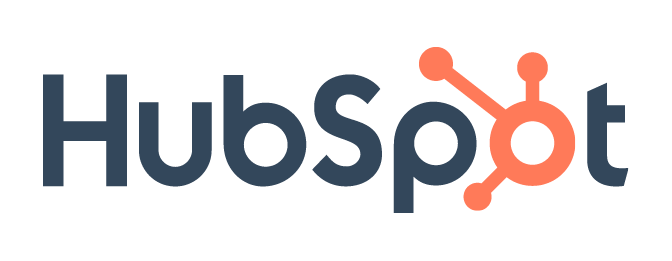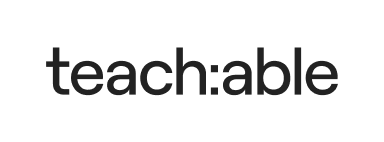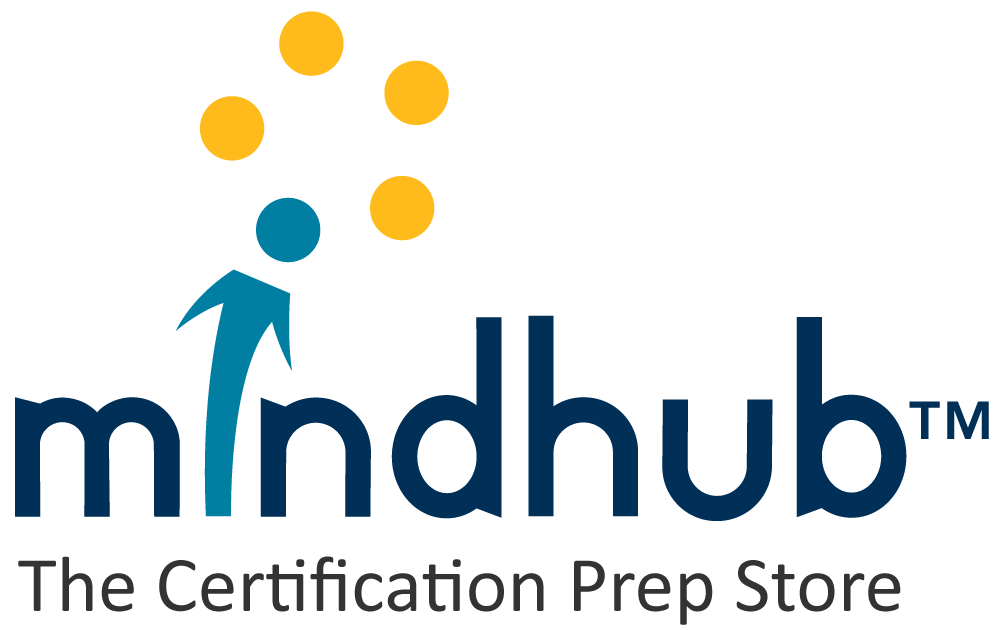The knowledge economy is rapidly transforming how we work and interact with the world. It encompasses various sectors, including education, research and development, information technology, and creative industries. Depending on the definition, some peg the value of the knowledge economy at $13 trillion by 2025. Tej Kohli, a London tech entrepreneur, pegs it at $150 trillion for the AI sub-segment alone. Lofty numbers, indeed. As the knowledge economy expands, staying ahead of the curve and being armed with the right tools to thrive in this new era is crucial. In this blog post, we provide practical tips on elevating your knowledge economy strategy by leveraging eight innovative technologies to successfully compete in the future workforce. Be sure to follow us on LinkedIn. Now let’s get started.
The knowledge economy defined
The EBRD broadly defines the knowledge economy as one that can grow through innovation or by total factor productivity. The knowledge economy is not only defined to tech, AI, Silicon Valley, etc. The knowledge economy encompasses entire sectors within an economy. Innovation in areas as basic as developing new techniques for subsistence farming is part of the knowledge economy.
According to the World Bank, 4 pillars exist for countries to fully participate in the knowledge economy. These include
- Education & Training: An educated and skilled population in order to create, share, and use knowledge
- Information Infrastructure: A dynamic information infrastructure ranging to facilitate the effective communication, dissemination, and processing of information
- Economic Incentive & Institutional Regime: A regulatory and economic environment that enables the free flow of knowledge supports investment in Information and Communications Technology (ICT) and encourages entrepreneurship. These remain central to the knowledge economy.
- Innovation Systems: A network of research centers, universities, think tanks, private enterprises, and community groups is necessary to tap into the growing stock of global knowledge, assimilate and adapt it to local needs, and create new knowledge.
It’s important to note that knowledge creation is much different than information. According to McKinsey researchers, information is more of the raw input, and knowledge is the context for how people think about that information. Fundamentally, it’s about human intelligence and the ability to create value from that raw information.

Future trends in the knowledge economy
One of the key trends in the knowledge economy is the increasing use of technology to create and disseminate knowledge. The rise of artificial intelligence, machine learning, and the Internet of Things (IoT) is transforming how we work and the skills needed to succeed.
Another trend is the rise of the gig economy and remote work, changing the traditional employment landscape. The ability to work from anywhere, coupled with the rise of online marketplaces, enables workers to access a global pool of opportunities.

To succeed in the knowledge economy, individuals need to develop various skills, including a mix of technical skills and soft skills, and the ability to learn and adapt quickly. Technical skills such as coding, data analysis, and digital marketing are increasingly in demand as businesses seek to leverage technology to gain a competitive advantage. Soft skills such as communication, teamwork, and problem-solving are also crucial, as the knowledge economy requires collaboration and the ability to navigate complex networks of relationships.
8 Innovative Ideas for the Knowledge Economy
The following 8 innovative technologies can help you build a robust organizational or personal knowledge economy strategy. Let’s take a look.
Monday.com: Your Launchpad for the Knowledge Economy
Monday.com, as a versatile work operating system, plays a crucial role in elevating an organization’s knowledge economy strategy.
For organizations seeking to bring efficiency to their overall operations and boost performance, Monday.com serves as a central platform for managing and optimizing various aspects of a knowledge-driven organization:
- Education and Training: Monday.com can track and manage employee skill development programs, aligning with the need for continuous learning in the knowledge economy.
- Information Infrastructure: The platform can act as a dynamic information hub, facilitating effective communication and knowledge dissemination across teams.
- Innovation Systems: Monday.com facilitates the management of research projects, the tracking of idea development, and the promotion of collaboration among various departments and external partners.
- Project Management: It can streamline workflows for content creation, digital marketing, and other knowledge economy activities.
- Data Analytics: Monday.com’s reporting features can provide insights into productivity, helping organizations make data-driven decisions.
- Remote Work Coordination: As the gig economy and remote work rise, Monday.com can help manage distributed teams effectively.
- Integration Capabilities: Monday.com can integrate with other tools mentioned in the document (like Hubspot for CRM), creating a comprehensive ecosystem for knowledge management.
In these ways, organizations can create a robust infrastructure to support their knowledge economy initiatives, fostering innovation, enhancing productivity, and staying competitive in rapidly changing markets by leveraging Monday.com.
Udacity: Future-Proof Your Skills
Udacity: Future-Proof Your Skills
Udacity is an online learning platform that has revolutionized the world of education. It is one of the market leaders in the Global Massive Open Online Course (MOOC) segment. Analysts expect growth in the MOOC industry above 30% annually between 2021 and 2026. With a focus on practical, job-ready skills, Udacity offers a range of courses and programs in areas such as data science, artificial intelligence, and digital marketing. Here are three key advantages of Udacity that make it a game-changer for online learning.
- Career-focused education: Udacity courses equip students with the skills to succeed in the job market. Students gain experience in real-world scenarios directly relevant to their future careers by focusing on practical, hands-on learning.
- Flexible learning: Udacity offers a range of learning formats, including self-paced courses, instructor-led programs, and project-based learning. This flexibility allows students to tailor their learning experience to their needs and schedules.
- Industry partnerships: Udacity has partnered with leading companies such as Google, IBM, and Amazon. The industry partnerships ensure the courses are relevant and current with the latest industry trends and provide students access to exclusive job opportunities and networking events.
Hubspot: Streamline Sales and Marketing
In today’s knowledge economy, businesses must leverage technology to streamline their sales and marketing processes. Hubspot is a leading customer relationship management (CRM) platform that can help businesses of all sizes achieve this goal. Here are three key advantages of Hubspot that can give you a competitive edge in building an effective knowledge economy strategy.
- All-in-one platform: Hubspot offers a suite of tools for managing your sales and marketing efforts, including lead tracking, email marketing, and social media management. This all-in-one platform can save businesses time and money by eliminating the need to manage multiple systems.
- Analytics and reporting: Hubspot’s analytics and reporting features provide valuable insights into the effectiveness of your sales and marketing efforts. By tracking metrics such as website traffic, email open rates, and conversion rates, businesses can make data-driven decisions to optimize their sales and marketing strategies.
- Automation: Hubspot’s automation features allow companies to automate repetitive tasks and workflows, freeing up time for more strategic initiatives. These automation features can help businesses scale their sales and marketing efforts without additional staff.
Orangedox: Optimize Knowledge Sharing
Effective document management is crucial for optimizing knowledge sharing within and between organizations in the new knowledge economy. Orangedox is a cloud-based document management platform that can help businesses of all sizes achieve this goal. It is the only virtual data room add-on available with Google Drive. It also works with Dropbox. Here are three key advantages of using Orangedox for knowledge economy document management. The company offers two core use cases: virtual data rooms (VDR) and education and training.
- Real-time tracking: Orangedox allows you to track document views and downloads in real-time, giving you valuable insights into various levels of interaction with your documents. Understanding the level of interaction among users can help you identify areas for improvement and optimize your knowledge-sharing efforts.
- Collaboration features: Orangedox’s collaboration features allow multiple users to work on a document simultaneously, streamlining the document creation and revision process. These collaboration features can improve productivity and reduce the time and effort required for document management.
- Security and compliance: Orangedox provides advanced security features such as password protection and encryption, ensuring your documents are secure and compliant with industry standards. This can help to protect your intellectual property and sensitive information.

ContactOut: Supercharge Lead Generation
In the knowledge economy, generating high-quality leads is crucial for the success of any business. Furthermore, it is crucial to consider how these leads align with your knowledge strategy. ContactOut is a lead generation platform that can help businesses of all sizes achieve this goal. Here are three key advantages of using ContactOut for lead generation.
- Accurate contact information: ContactOut uses advanced algorithms and data sources to provide accurate contact information for potential leads. Its database covers most industries, including sales finance, technology, healthcare, etc. According to the company, its AI-based lead capture process is 99% accurate for its database’s over 200 million work emails and 150 million personal emails. The depth of its database saves businesses time and effort by eliminating the need to search for contact information manually.
- Chrome Extension: ContactOut’s Chrome extension, which works in top of LinkedIn and GitHub, allows businesses to access contact information while browsing the web easily. The chrome extension makes it easy to add potential leads to your sales pipeline quickly.
- Integration with CRM systems: ContactOut integrates with popular CRM systems such as Hubspot and Salesforce, allowing businesses to transfer leads to their sales and marketing teams seamlessly. This CRM integration helps streamline the lead generation process and improve conversion rates.
Creators Legal: Protect Your Digital Work
In the knowledge economy, content creation is essential. However, it comes with challenges. Creators Legal is a comprehensive solution that caters to the legal needs of content creators, such as artists, writers, musicians, and content creators. It offers various services to protect and manage their intellectual property and supports various legal issues they may encounter.
- Intellectual Property Protection: Creators Legal helps safeguard the intellectual property rights of creators. It assists in registering copyrights, trademarks, and patents, ensuring creators have legal protection for their original works and ideas. By securing intellectual property rights, creators can prevent unauthorized use, reproduction, or distribution of their creations.
- Contract Assistance: Creators Legal offers contract drafting and review services tailored to the specific needs of creators. It helps negotiate favorable terms and conditions in agreements, such as licensing, publishing, or collaboration contracts. This ensures that creators have a clear understanding of their rights and obligations, minimizing the risk of disputes and protecting their interests.
Creators Legal Marketplace: Through its Ask a Lawyer service, Creators Legal provides expert legal guidance and representation for creators facing legal challenges. Whether addressing copyright infringement, resolving contract disputes, or dealing with licensing issues, Creators Legal offers professional advice and assistance
Teachable: Revolutionizing Content Creation
Teachable is an online platform that enables individuals and businesses to create and sell online courses. Here are three key advantages of using Teachable to create content in the knowledge economy.
- User-friendly platform: Teachable’s platform is easy to use, even for those with little technical experience. Users can customize their course pages, create engaging multimedia content, and manage their courses all in one place.
- Marketing tools: Teachable offers a range of marketing tools to help users promote their courses and reach a wider audience. These include email marketing, affiliate marketing, and social media integration.
- Scalability: Teachable designed its platform to scale with a business’s growth. Whether you have 10 or 10,000 students, Teachable can handle the traffic and ensure a seamless user experience.

MindHub: Navigating the Knowledge Economy
Are you looking to enhance your knowledge and skills and navigate the competitive knowledge economy? MindHub by Pearson VUE is a comprehensive online platform to help you achieve your career goals. Here are three key advantages of using MindHub:
- Extensive Exam Preparation: MindHub offers a vast range of exam preparation materials for various certification exams in industries like IT, finance, healthcare, and more. The platform features practice exams, study guides, and self-paced training courses that help you build your knowledge and confidence. MindHub also allows you to schedule and take exams conveniently from the comfort of your home or office.
- Personalized Learning: MindHub’s personalized learning experience lets you focus on your specific areas of interest and skill gaps. You can create a customized learning plan tailored to your learning style and pace and access learning resources based on your needs. With MindHub, you can optimize your learning and maximize your chances of success.
- Career Advancement: MindHub is not just a certification exam platform but also a hub for professional development. You can access various resources, such as industry insights, job market trends, and career advancement tips, to help you stay ahead of the curve. MindHub also offers online courses and certificates to help you acquire new skills and enhance your resume, increasing your employability and career advancement prospects.
Competing in the Knowledge Economy
Finally, the ability to learn and adapt quickly is essential in the knowledge economy. New technologies and ways of working are constantly emerging. Digitization throughout the knowledge economy provides a level of knowledge equalization never seen before. The coming ubiquity of AI is transforming whole sectors at hyperspeed, potentially creating redundancies in various functions. Our recent post on ChatGPT and corporate admin tackles this issue.
A robust knowledge strategy is essential but must be discovered for many organizations. For individuals, more workers continue to disengage with employers and seek new value-creation models. However, this approach requires a growth mindset and a willingness to embrace change and take on new challenges. Our 8 innovative technologies focus on everything needed to stay competitive in the knowledge economy. These include content creation, upskilling, knowledge protection, document sharing, collaboration, and networking. These technologies will elevate your knowledge strategy, preparing you to win in the new knowledge economy.
Disclosure: At ClearSky 2100, our portfolio partly consists of affiliate partnerships. We may earn a small commission from buying links on our site at no cost to you.










